FREQUENTLY ASKED QUESTIONS
Collapsible content
Why Herbalism?
Herbalism is the world's oldest and more enduring healing modality, with around 80% of the world's population still using herbs as their primary form of healthcare today. The wisdom of plants and how to work with them has persisted over millennia, as we as humans have lived within and among the natural world, learning from nature and from the healers before us. Even today, an estimated 50-60% of Western pharmaceutical drugs are derived from plants, or contain synthesized versions of active plant constituents.
At its core, herbalism is the medicine of the people. Herbal knowledge has supported (and still does) families and communities where access to modern conventional modalities was prohibitive. Herbs still provide valuable palliative care for people who may not lack in heroic measures, but still benefit from consistent, caring support. Herbs are still so often the first line of defense in home remedies, first aid, and personal daily care.
Do you grow or wildcraft your herbs?
Many of the herbs that I work with are grown in my garden and food forest-style hedgerow. At present, I have 50+ different species of plant allies growing that I have directly cultivated, to say nothing of the fruits and veggies I grow for my family, and the plants that were already in the landscape before I arrived! That said, not everything is growing in great enough volume to supply more than what my own household can use, and some really beautiful plants don't thrive in our climate or soil. In addition to what I grow, I do wildcraft some herbs, and I also purchase some herbs from other growers and retailers where appropriate.
Do you use essential oils?
All of my products use whole plant matter long-infused in oil, vinegar, or alcohol-based menstruum(solvent).
Essential oils are a valuable and precious resource, but are not my first choice for making herbal products. Essential oils only capture the most volatile compounds in a plant, while leaving many valuable constituents behind. A famous example of this is with frankincense. Boswellic acid is the primary known healing component of frankincense, but is too molecularly heavy to be steam distilled into an essential oil. Long-infusion of plant matter into a menstruum is usually the best way to extract a well-rounded herbal product. There are also legitimate sustainability concerns with the overuse of essential oils. It takes many pounds of a single type of herb to distill enough essential oil for a small 5ml bottle, whereas a mere fraction of that same herb could be infused into a carrier oil for a gentler and more cost-effective oil.
Essential oils work best in when used in the context of aromatherapy, where volatile oils and scents are used to support emotional and mental wellness, and occasionally in skincare products where the powerful scents are the active ingredient we seek, as in "vapor" rubs and insect repellant, or in accenting the natural scents of the product to enhance the sensory pleasure of working with it. In many products, however, essential oils are not necessary. In the few products where I have included them, I explicitly list it in the ingredients list as an essential oil, and only in highly diluted form.
How long are my products good for?
I recommend using the tinctures within 2 years, skincare products within 1 year, tonics and elixirs (vinegar+honey or alcohol+honey preparations) within 6 months, and syrups (honey+water) within 2 weeks after opening. Dry teas may lose their freshness after 6 months.
How do I take a tincture?
With herbal extracts, dosage is personal. Some people will see benefit from mere drop dosage, and others benefit from several whole dropperfuls, several times a day. A standard suggestion I have for adults is 1-2 dropperfuls a day, under the tongue on a relatively empty stomach, but if that's too intolerable, adding the tincture to a small amount of water or juice is the next best thing.
What if I'm pregnant/breastfeeding/on medication?
Herbalists are not legally able to give personalized recommendations outside of a clinical setting. I strongly recommend you research any new herb you wish to work with and its potential contraindications and consult with your physician.
Medical Advice
I am not a doctor, nor am I a clinician. There is no governing body licensing herbalists in the United States. While I can share information about herbs, the information I provide is for educational purposes only. The information therein and the products I create are not intended to diagnose, treat, cure, prevent any disease.
Shipping Policy
Orders can expect to ship within one week.
